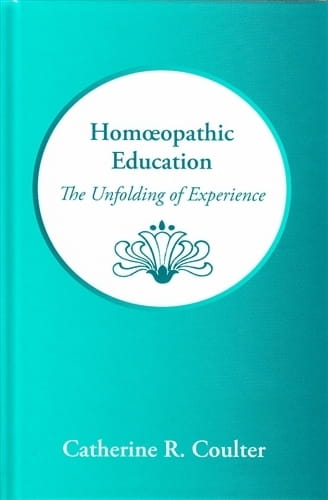Catherine R. Coulter's latest book "investigates the body of knowledge a homoeopath spends his life amassing and examines his manner of acquiring it. As in all forms of growth, during the process of becoming a full-fledged practitioner, there are certain clearly delineated stages to be passed through, each presenting challenges to be confronted, pitfalls to be avoided, and disappointments to overcome.
- Author: Catherine Coulter
- ISBN: 9780971308275
- 321 pages
- Hardback
- Published in 2008
- Printed in United States
Reprinted with the permission of The Society of Homeopaths (from "The Homeopath" Journal, Summer edition 2009). Reviewed by Annie Batchelor.
I came to this latest Coulter publication with enthusiasm, enjoying her scholarly approach in revealing the materia medica from her classical homeopathic view. Those of you who are familiar with her writing will also recognise the quietly assertive authorial voice and confident referencing to her own experience.
This work takes the form of three parts:
- 'Homeopathic Knowledge' is a description of the path to becoming a practitioner, the basic knowledge required and suggested approaches to establishing the knowledge learnt by practicing;
- 'The Educational Scene' is a critique of current pedagogy;
- the last - Individual Growth or deepening, continues to demonstrate her approach by a thorough evaluation of Argentum nitricum. She concludes with her thoughts on the way forward for us all.
Catherine Coulter has facilitated homeopathy instruction of medical doctors using the model of 'clinical preceptorship' since 1972. This is founded on an in-depth reading and understanding of The Organon and Lesser Writings, and Kent's essays and commentaries on philosophy and material medica. Apart from Boericke and Boger, both chosen for their useful repertories, there is a stunning absence of referred texts. But this is not a mindless exhortation but a passionate and well-reasoned exegesis of the value of our founding fathers. It follows patient and selfless encouragement of learning and has much to offer us all; it is, in sum, a plea for a return to the apprenticeship as a learning model.
In the second part The Educational Scene' the review of methodologies of teaching includes insights into the advantages and disadvantages of the preceptor model. The polemic emerges here with a gentle but firm finger-wagging at those in danger of straying too far from the fold. I found myself agreeing with much of it! This second part may convey her heart's desire. All of which leaves me in a quandary. Like so many texts published there is the appeal to 'everyman', yet this second part is Coulter's personal critique of other authors and methodologies in all but name.
This new Coulter contribution to our literature falls into a tradition of sound writing from a personal perspective. I am thinking here of Margaret Tyler and Phyllis Speight (will some kind publisher please re-print her wonderful Introduction to Homeopathy). These authors have flair and call on their own practices to illustrate by example. This book is not of the ilk of the uber-referenced, academic studies; the bibliography is spare, there are no website or research papers to refer to. But in summary, I think the educators among us will enjoy its reach and the student homeopath will enjoy her knowledge and confidence. Personally, I would wish for a text edited with the profession more in mind, and this is its major drawback.

